Who is a Marine Surveyor – Responsibilities, Qualifications, and Skills
Shipyards take great care in designing and building ships, with regular inspections. They know every mistake will cost them heavily in terms of delays and fines.
Once the construction of a ship is finished, the shipowners must then ascertain that the vessel meets the standard laid out in the building contract.
Although most organisations employ in-house specialists, they ensure that the vessel meets the benchmark, and an independent inspection may sometimes be required for the same.
Third-party inspectors may need to survey a vessel separately. Generally, marine insurers might require an assessment of the condition of a ship before some legal arbitration. Or standardisation bodies might need people qualified to ascertain a ship’s seaworthiness before being registered. In all these scenarios, specialists with enormous maritime experience and knowledge often handle the situation.
These specialists who inspect and monitor various ships using advanced inspection methods are known as “Marine Surveyors”. Considered to be one of the most prestigious vocations in the industry, it demands a great deal of technical know-how. A marine surveyor should know how to inspect a vessel’s hull, marine engines, electrical system, and other electronics, check for water intrusion, proper functioning of the heat and airconditioning etc.
This article will dive into marine surveyors’ world and analyse their responsibilities, qualifications, and skills.

What are the Duties of a Marine Surveyor?
Marine surveyors conduct inspections of vessels of all types, including commercial vessels, cargo vessels, passenger vessels, barges, tugboats, warships, ferries and pleasure yachts that are under 20 meters, all the way up to tankers measuring over 200 meters. They also inspect marine cargo and facilities like drydocks, canals, docks and oil rigs for pre-purchase evaluation, insurance claim resolution, regulation compliance and marking insurance eligibility.
A good surveyor can work with most vessels and help the buyer ascertain the long-term suitability of his asset.
To ensure proper functioning and disbursement of duties, there are several different responsibilities that these surveyors are required to fulfil.
The primary responsibility of a marine surveyor is to conduct thorough and extensive surveys of a ship. Before delivery, a complete analysis of the entire vessel must be carried out, as this determines the initial seaworthiness of the ship.
While playing an important role in maritime arbitration and insurance, it also lets the shipowner know that the vessel they are receiving is in the best possible condition.
Various surveys are carried out during the vessel’s life for different reasons. These could be annual surveys used to study vessel performance yearly. Or there could be interim surveys intended to inspect specific parts of a ship. Special surveys can also be conducted in case of registration or other formalities.
Another responsibility of a marine surveyor is to ensure that machinery and equipment are functioning as required. This includes essential components such as engines, communications and navigation. It also needs emergency and safety equipment to be checked under realistic operating conditions. The surveyor must witness the tests and ascertain that any generated reports fall within acceptable standards.
Along with inspections, surveyors must ascertain the load regulations and limits calculated for a vessel. Gross tonnage and deadweight tonnage (DWT) are to be cross-checked with the values stored in the stability handbook of the ship. Checking the load lines and draft markers is also required, as some companies may attempt to overload their boats. The surveyor assists in load line assignments and checks weight distribution as well.
The next duty that surveyors are required to perform is the investigation of maritime accidents. This could be part of insurance institutions or from the shipowners’ side when claiming marine insurance; ascertaining the ship’s condition before the accident is essential.
Determining the extent of the damage is also required. For this, marine surveyors consult reports of the vessel before the accident. In case of being submerged, salvage operations may be necessary. Before commencing a salvage, surveys may also be conducted to ensure that the wreck can be safely moved without damaging the vessel and the surrounding biosphere. Protection and Indemnity (P&I) insurance companies can also employ these marine surveyors as third-party specialists for ascertaining damage compensation.
In case of an accident, a marine surveyor will be required to investigate the occurrence from an official capacity as deemed by a relevant maritime law court. They report to the court in all matters about the condition and performance of the ship. They also act as expert witnesses who can depict the ship’s condition. In case of any deaths, the surveyor may have to assist the coroner in ascertaining probable causes and locations of demise. Thus, marine surveyors also play an important role in maritime law and serve as advisors to a court of law.
Lastly, surveyors can also be tasked with a fair and unbiased evaluation of maritime assets. When buying a ship from another party, it would be wise to engage a marine surveyor to determine the condition of the boat that you are receiving. In case you wish to sell a ship, surveyors provide a realistic figure for the ship’s market value, known as the Fair Market Value, from an unbiased analysis. During damage reports or component replacements, marine surveyors may also determine the expected costs to be incurred while accounting for various factors in the industry.
Some of the other duties that marine surveyors can perform include:
1. Marine warranty surveys
2. Charter surveys
3. Flag state surveys
4. Offshore structural surveys
5. Hull and equipment surveys
6. Cargo surveys
The Different Types of Surveyors
Since this industry is incredibly diverse and vast, different surveys are carried out by specialised surveyors who are experts in their respective fields. This section will look at the various types of surveyors and the organisations they fall under.
There can be two main types of surveyors depending on their primary objectives- proactive and reactive surveyors. Proactive surveyors aim to identify problems before they occur. They are generally responsible for assessing vessels before purchase or during routine checks.
In case any flaw or damage is located, a potential mishap is averted. Hence, the surveyors are considered to be proactive. On the other hand, reactive surveyors are called in after some incident has occurred. They include insurance, arbitration, and claimant surveyors. Since they assess the vessel as reacting to some occurrence, they are referred to as reactive surveyors.
Cargo surveyors are specialists hired by a charterer or organisation transporting cargo bulk. The cargo owner entrusts the surveyor with ensuring that the cargo is loaded and unloaded appropriately. In addition to assessing the cargo operations, the surveyor calculates the permissible loads and maximum and minimum drafts and cross-checks the manifest with the loaded cargo.
In the case of loose goods carried in bulk carriers, there may also be necessary to ensure sufficient provisions to prevent cargo from shifting during the journey. For expensive and high-value goods, the surveyor may be required to oversee the loading and unloading operations personally. When transporting goods prone to contamination or infection, the surveyor is responsible for ensuring that precautions are taken to secure the goods safely. As the name suggests, the cargo surveyor is responsible for all cargo-related operations and inspections.
Classification surveyors are representatives of the classification society and ensure that a vessel adheres to pre-set regulations. A classification society is a standardisation body responsible for ensuring that ships are built and operated safely. They may impose restrictions on boats based on the vessel class and require the ship to maintain these standards to retain their registration under the society.
The Lloyd’s Register, Bureau Veritas, and Indian Register of Shipping are prominent classification societies. These surveyors must inspect a vessel and its machinery to ensure it meets the set standards. They also serve as representatives of the vessel’s flag state to ensure that domestic statutes are adhered to. A flag state refers to the country’s flag under which a ship operates. This surveyor checks a vessel’s construction, outfitting, maintenance, pollution levels, etc., and passes a recommendation to both the flag state and the classification society. If there are any issues, a window of time is provided to correct the problem. These surveyors usually work alongside government surveyors.
Government surveyors are officials representing two main points of interest- a flag state representative and a port state representative. The flag state official ensures that a vessel registered under its country meets satisfactory requirements to continue its registration. In case of any prolonged and uncorrected issue, the flag state has the power to suspend or revoke a registration. This prevents the ship from entering any port, as it no longer has any affiliation. On the other hand, the port state official reports to the government of a country where a particular ship is docked. They are tasked with ensuring that all incoming and departing ships satisfy the requirements of that specific port. In addition to surveying vessels, they can also be responsible for ensuring that the draft limits of a port are maintained.
A yacht and small craft (Y&SC) surveyor is responsible for inspecting and monitoring a small boat. They check the various equipment and machinery onboard. Since most of these vessels are for personal pleasure, the owners hire surveyors to inspect their vessels. Although some surveyors operate under organisations, the vast majority of these hires are independent surveyors.
An insurance and warranty surveyor inspects vessels for insurance and P&I purposes. Either party in an insurance claim can hire them. For instance, insurance companies often hire staff surveyors to estimate the damage and determine whether it falls under a valid insurance claim. On the other hand, the claimant would employ a surveyor to conduct a private inquiry and may use their report in a court of maritime law. Although insurance companies often suggest that claimants hire a surveyor to run their analysis, both parties prefer involving an unbiased third party. It is illegal for an insurance company to force a particular surveyor on the claimant.
Lastly, an independent surveyor is an individual who carries out surveys independently, without being associated with any organisation. They are usually hired to run private third-party reports on a vessel’s construction or incident. They offer their services in pre-purchase surveys, evaluation, draft surveys, confidential insurance enquiries etc. Independent surveyors rely mainly on goodwill and publicity to increase their customer base.
Training, Qualifications and Accreditation
Being a marine surveyor requires several skills that need to be certified by official bodies. The training and certification phase is critical as it creates a foundation for being a successful surveyor. Working in that field for several years can be helpful to show expertise in specific skills.
For instance, to be a surveyor for container ships, having worked onboard a ship or at a port, a terminal can serve as a certification prospective clients wish to see. On the other hand, if you want to survey a domain with no valid experience, being certified by some third party is possible. Taking specific courses is relatively easy, as there are a large number of bodies that conduct them. These include Lloyd’s Register, Maritime Training Academy, and Det Norske Veritas Germanischer Lloyd (DNV GL). It is interesting to note that most standardisation societies provide certification on many maritime courses.
Regarding certification for Marine Surveying itself, there are relatively few options available. This may be because surveying is a skill learnt with extensive experience and is not something that can be picked up overnight with a classroom course. Reputation is king in this industry, and no amount of certification will bring in clients unless you possess certain vital qualities.
Nevertheless, there are specific international organisations providing certification in this surveying. These include Lloyd’s Maritime Academy, the International Institute of Marine Surveying (IIMS), the National Association of Marine Surveyors (NAMS), and the Society of Accredited Marine Surveyors (SAMS). Members of SAMS, known as Accredited Marine Surveyors (AMS), hold valid certification and represent a large group of surveyors who establish precedents and maintain standards for all members to follow. Most societies suggest getting direct experience under a marine surveyor after completing their courses. However, one can also directly approach an experienced surveyor first instead of joining a class.
The primary skills that prospective clients look for in a surveyor are subjective. Generally, well-spoken and confident individuals portray a positive image. However, anyone who can prove their expertise in this field is quickly given opportunities. A candidate must be able to write reports compact yet detailedly. Since survey reports are the first impression of any surveyor, they must stick to mutually acceptable standards. In addition to these skills, having prior experience in any field of the maritime industry is preferred. Training under an experienced surveyor is the best method to pick up essentials and valuable skills.
Salary and Perks for Marine Surveyors
The enormous responsibility of determining the condition of a ship is by no means an easy job. Livelihoods, industries, and large amounts of money hang in the balance waiting for the marine surveyor’s approval. Being thorough is a necessity, as any error on their part can affect the global shipping industry. Thus, being adequately compensated for their skills is also a must. The marine surveying industry has specific standards that ensure its members are provided with adequate benefits.
Marine surveyors usually require a minimum of experience in the various industry domains they are tasked to handle. The more the experience, the higher the package they can expect to receive. In addition, certifications from prestigious institutes can also go a long way in ensuring that clients value your opinion. Although starting your career as an independent surveyor will ensure you receive your entire fee, you will lack in terms of other perks and benefits organisations can provide you.
The annual salary for a marine surveyor in the USA ranges between $60,426 and $81,974, with the average salary coming in at $70,089. This salary can depend on the size of the vessel to be surveyed, its location, costs you may incur to prepare a report, the cost of travelling etc. Also, enjoying goodwill amongst reputable ship-owning companies will provide you with a good client base. When estimating the average fee or commission per survey, it is crucial not to follow a ‘one size fits all strategy. The perks and benefits enjoyed by surveyors engaged with organisations include medical insurance, rent allowances, travel allowances etc. It also provides them with a network of like-minded individuals involved in the same field.
Report preparation is considered a tricky subject in the marine surveying industry. It can be the make-or-break component in any surveyor’s career. A well-written and detailed report would increase their client base through word-of-mouth marketing. On the other hand, a poor report could also effectively tank their prospects. Thus, most marine surveyors go to great lengths to learn the skill of report writing.
The essential points to look out for include language that is easy to comprehend, a detailed analysis of the various areas of the vessel, photographs or other visual media to emphasise a particular finding, and concisely preparing a report. Most clients find reading bulky and oversized reports to be counterproductive. They prefer to avoid surveyors who use too many words to convey a simple concept. Writing succinct reports that even laypeople can understand will go a long way in attracting more customers.
The marine surveying job also features benefits that go beyond the monetary aspects. It is a prestigious occupation that allows you to utilise your skills even after you retire from active sailing. It is also an opportunity to pass on knowledge to other individuals and actively connect with them.
The bottom line is that this industry presents a fantastic chance for motivated individuals to face new daily challenges that put their skills to the test. Based on your marketing and performance, you may be able to make much more than the industry average. It is essential to realise that this field has no fixed salary or income, unlike other industries. Although the above figures are based on extensive studies and research, the actual values may differ depending on your expertise and geographical location.
Frequently Asked Questions
1. What is the job of a marine surveyor?
The primary responsibility of a marine surveyor is to conduct thorough and extensive surveys of vessels. Before the delivery of a new ship, such surveys are essential to ensure the proper functioning of all onboard systems and guarantee the vessel’s seaworthiness.
2. How do you become a US Marine Surveyor?
Marine surveyors are needed to have a certain amount of experience in the several industry domains they are trained to handle. The more experience and projects are completed, the better the salary package. Additionally, maritime institutes’ certifications can help get clients’ trust.
3. What are some of the surveys conducted by marine surveyors?
Some of these surveys include marine warranty surveys, charter surveys, flag state surveys, offshore structural surveys, hull and equipment surveys and cargo surveys.
4. What is AC and V Survey?
A repurchase survey is conducted when someone is thinking of buying a vessel. It is quite a comprehensive ‘Condition and Valuation’ or C&V Survey that incorporates operational testing of all the onboard equipment and includes a sea trial of the vessel in question. Also, the ship is inspected thoroughly, both inside and out.
5. What is the need for a marine survey?
A marine survey is essential for determining what repairs or upgrades are required so a vessel might operate under safe conditions at sea. Marine surveys ensure that all systems onboard vessels run smoothly, so there are no accidents, loss of life or property at sea. They also help to know the actual value of a boat or vessel.
You might also like to read.
- Different Types of Marine Insurance & Marine Insurance Policies
- 50 Marine Careers Essential Guide
- How to Become a Hydrographic Surveyor?
- What is Marine Asbestos Survey?
- Interview: Job Of Claims Executive In The Maritime Industry
Disclaimer: The author’s views expressed in this article do not necessarily reflect the views of Marine Insight. Data and charts, if used, in the article have been sourced from available information and have not been authenticated by any statutory authority. The author and Marine Insight do not claim it to be accurate nor accept any responsibility for the same. The views constitute only the opinions and do not constitute any guidelines or recommendations on any course of action to be followed by the reader.
The article or images cannot be reproduced, copied, shared or used in any form without the permission of the author and Marine Insight.
Do you have info to share with us ? Suggest a correction

About Author
Ajay Menon is a graduate of the Indian Institute of Technology, Kharagpur, with an integrated major in Ocean Engineering and Naval Architecture. Besides writing, he balances chess and works out tunes on his keyboard during his free time.
Latest Marine career Articles You Would Like:
Subscribe To Our Newsletters
By subscribing, you agree to our Privacy Policy and may receive occasional deal communications; you can unsubscribe anytime.



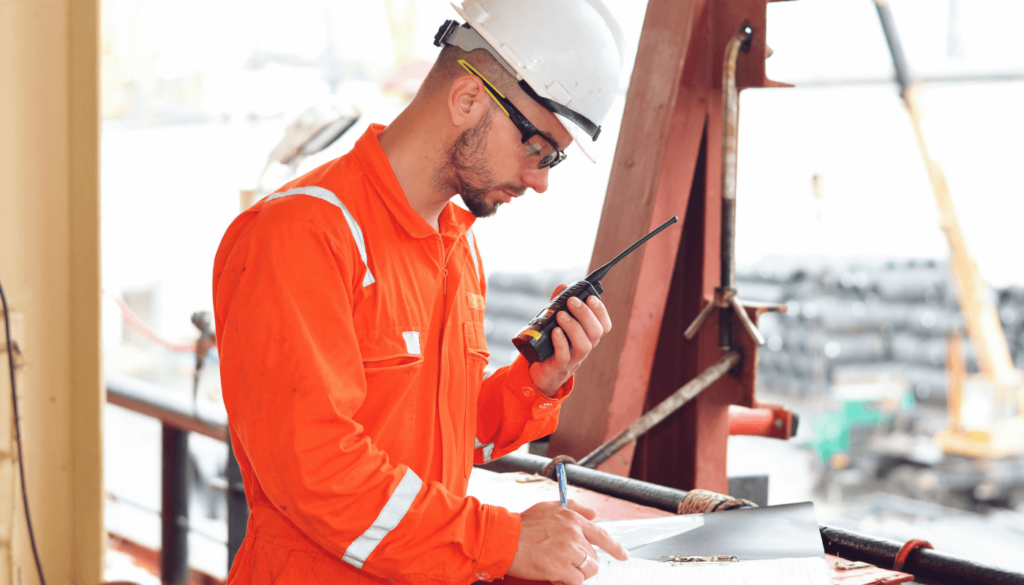
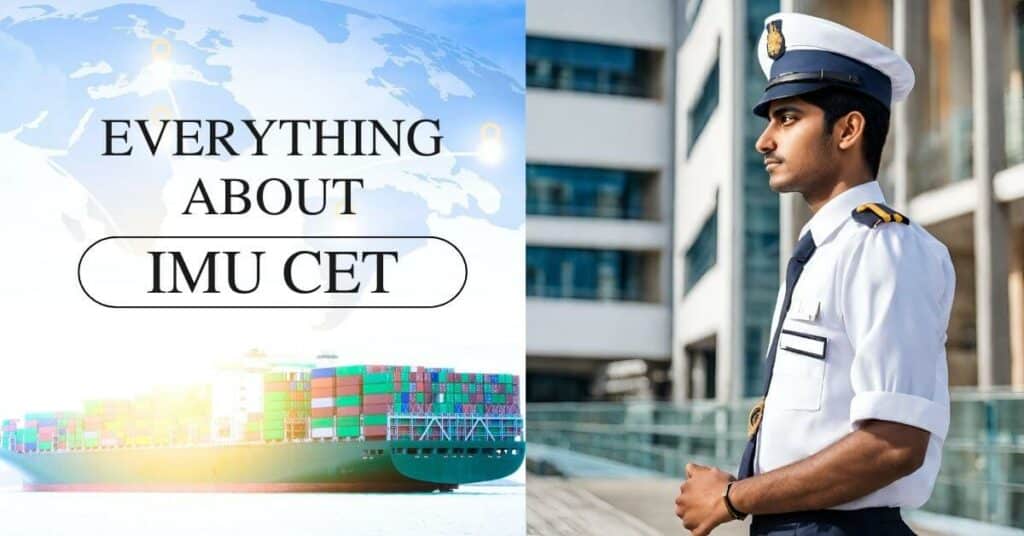


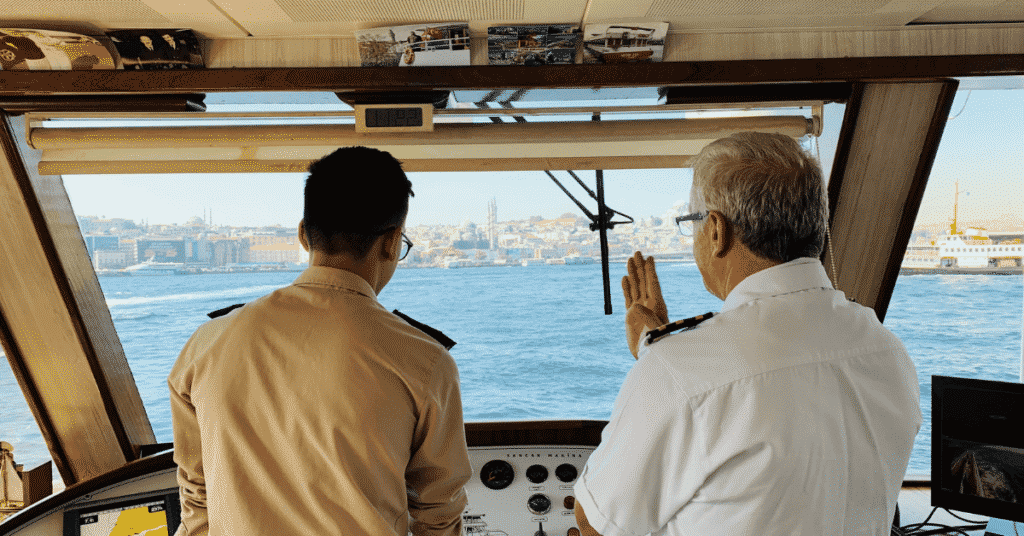


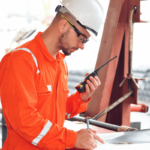



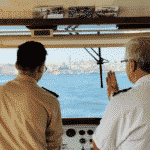

I appreciate your content, it’s very useful
Very well said, so useful so wonderful it emphasize clear views direct to the point. Many thanks wish to read more from you soon.
Nice one……
Nice one and very interesting .
Great detail you put forward.
I’m really very close to choosing my route to become a Marine Surveyor. This was really helpful
Thanks